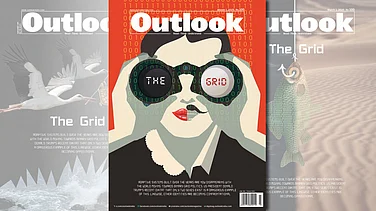Why did you refuse the Padma Bhushan?
I have a sense of unease about these awards. Over the years, there has been adegree of slippage and state awards are often seen now as government awards--ineffect, as government patronage. The line between them may be thin, but it hasto be maintained.
Why do you object to being patronised by the government ?
Because there are governments and governments! I approve of the present one,but I was opposed to the previous BJP government. I see the relationship betweenthe state and the academic as a two-way process. Academics can give legitimacyto a particular state system even if they are dependent on the state forfinancing the institutions in which they work. The relationship should thereforebe treated as one among equals and not a patron-client relationship.
This relationship is even more important in the light of our experience withthe previous government. That was a clear case of a government attempting toimpose its ideology on education. It was obstructing the development of criticalenquiry which is essential to promoting knowledge. That phase has passed and wenow have a situation where, inevitably, there is a shuffling out of people fromvarious educational institutions. People like me who were earlier beingtargetted are no longer harassed. But these steps are temporary. What I amhoping for is that we will strengthen our institutions with statutory status andlegal procedures that will help them maintain their autonomy. This is essentialto stop political interference in the future. I would like to see moresafe-guards installed to prevent the kind of onslaught the BJP unleashed oneducational institutions.
You were also the target of vicious personal attacks. Don't you think theannouncement of the award is a kind of vindication of the stand you took duringthe last five years?
I have always appreciated professional comments on my work. What irritated mewas that people with no competence in history were the loudest in attacking meas a historian. Their intention was not to question the knowledge I wasgenerating, for hardly any of them had even read my work. The intention wasentirely political. For the BJP, history was used as a handy tool for politicalmobilisation and anyone who questioned this had to be pushed aside. Most peopledid not see this and thought that the debate reflected the nature of historicalresearch. However historians and academics saw through this and were supportiveof those of us who were being targeted.
One message from the current awards is that apart from others, the governmentchose to honour those of us who were targetted earlier, and to that extent Iappreciate this gesture. Nevertheless, the system makes one feel that one shouldbe a little distant and all the more so if one is trying to be consistent in howone views state awards.
This is no way alters the fact that there is an enormous sense of relief thatthe focus of public debate has changed to the basic issues of our society in thelast few months. I was more than delighted with the election results. But weshould not stop at this. This is the time to ensure that institutions promotingthe advancement of knowledge can be so strengthened as to be able to resistpolitical interference, in light of our experience with the previous government.That was a clear case of a government attempting to impose its ideology oneducation. It was obstructing the development of critical enquiry which isessential to promoting knowledge.
















